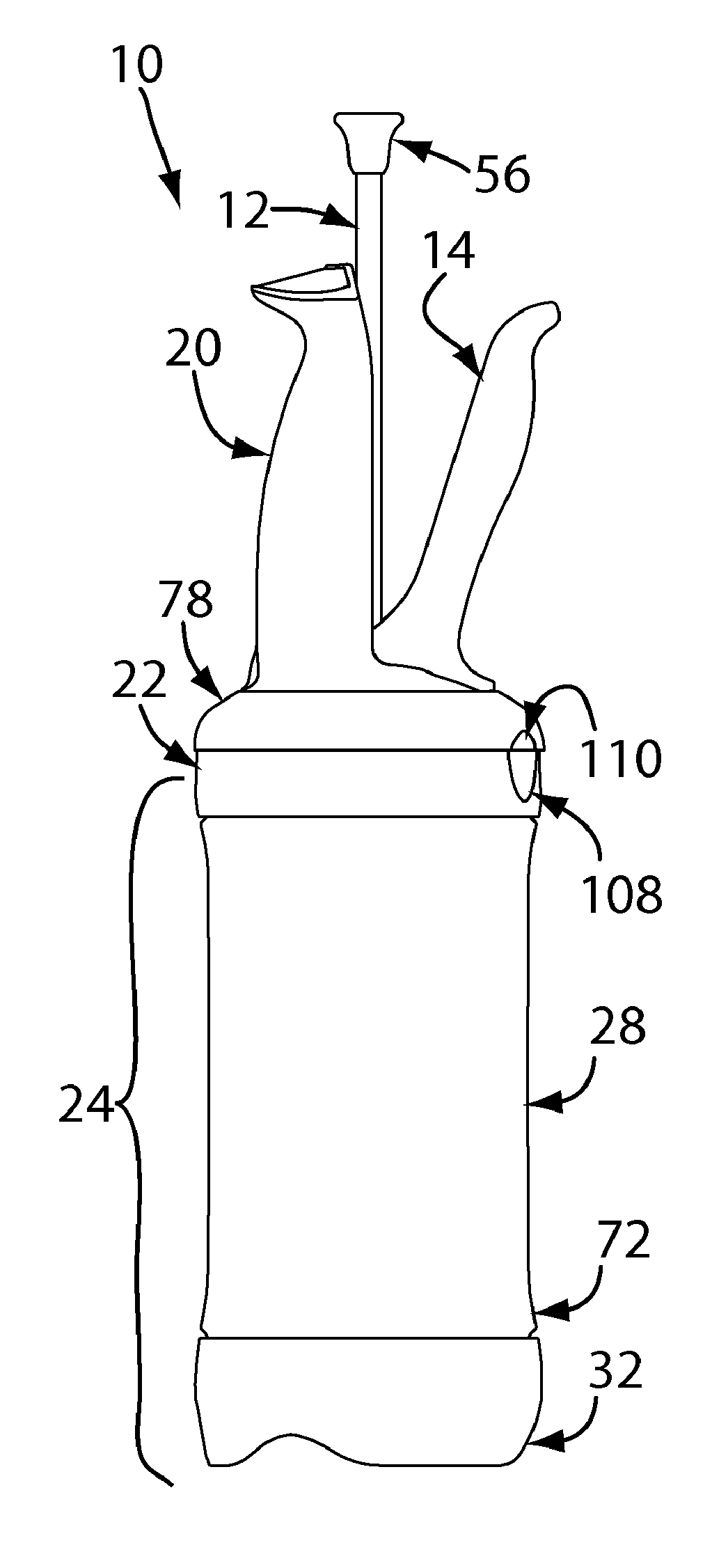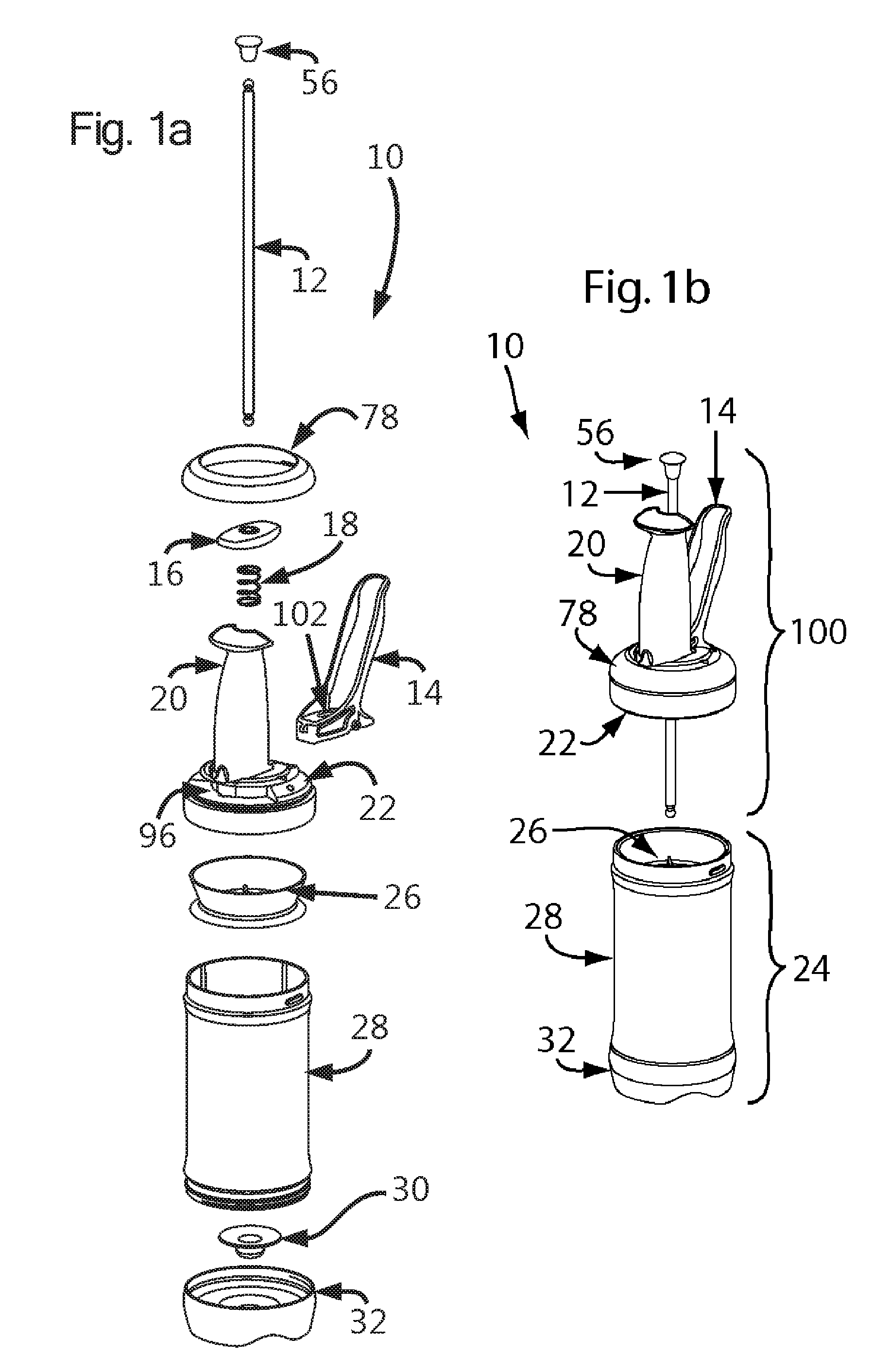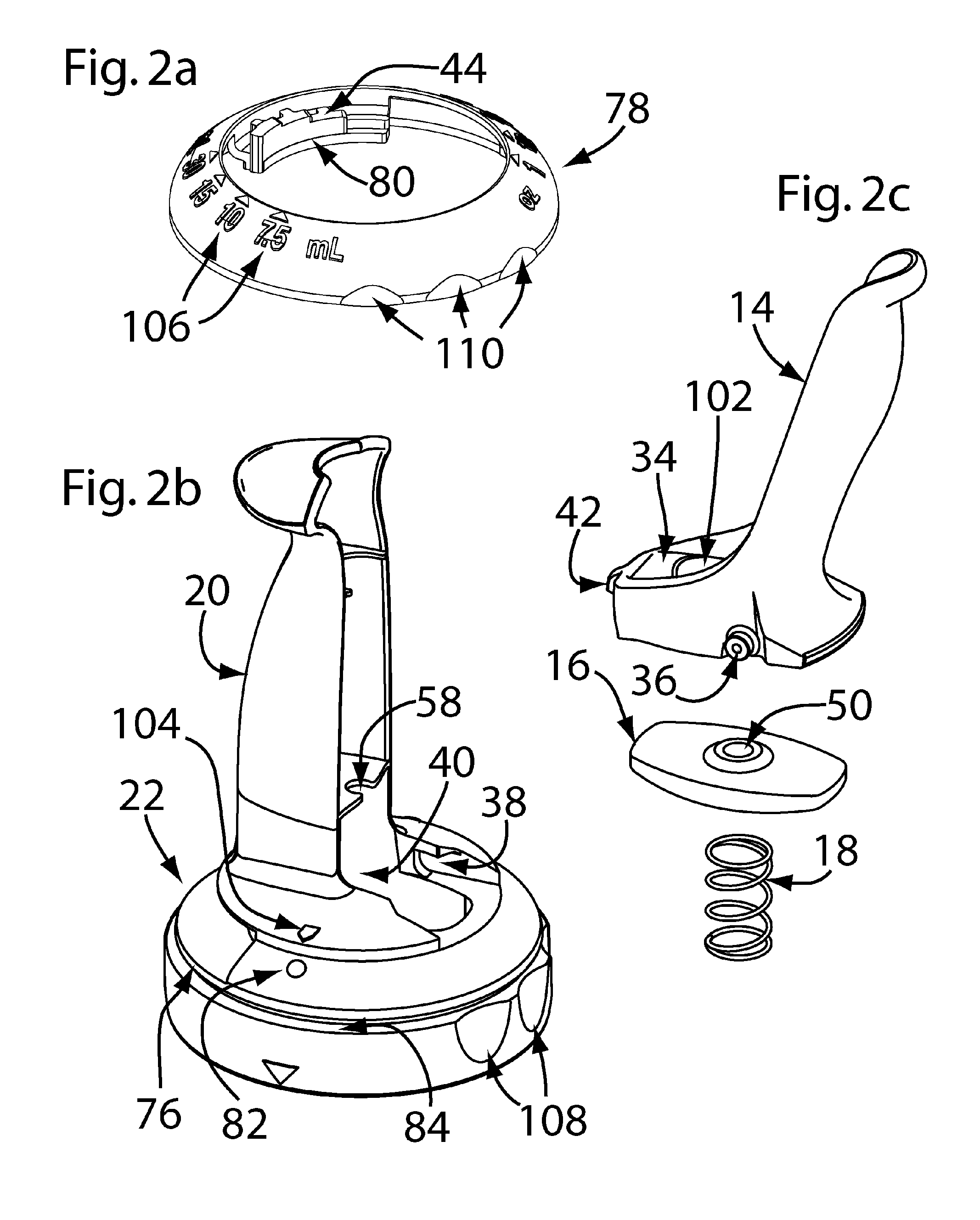Ergonomic Portion Measuring Fluent Material Dispensing System
a fluent material and portion technology, applied in the direction of liquid/fluent solid measurement, container, contracting/expanding measuring chamber, etc., can solve the problems of user fatigue and accuracy reduction, waste of food, and inability to perform as well for the purpose at hand, so as to reduce user fatigue, improve productivity, and improve the effect of cleaning and storage options
- Summary
- Abstract
- Description
- Claims
- Application Information
AI Technical Summary
Benefits of technology
Problems solved by technology
Method used
Image
Examples
Embodiment Construction
[0037]Invention elements will now be disclosed by reference to drawing figures. Elements will then be described in detail, and functional interactions between invention elements as well as groups of invention elements will then be described.
[0038]FIG. 1a shows an isometric exploded view of the basic Dispenser 10 elements, namely a rod 12 with a rod cap 56, a plate 16, spring 18, handle 20, handle cap 22, plunger 26, bottle 28, outlet valve 30, and discharge cap 32. Also shown are a portion ring 78, a ledge 96, and a lever 14 with its rod port 102. (Note: a handle cap 22 is a cap that fits onto the top of a bottle 28 with a handle 20 as part of, and integrated with, its essential structure. While the handle 20 cannot be physically separated from the handle cap 22 in at least some embodiments, it can be logically identified as a sub element of its parent structure.) FIG. 1 b shows an isometric semi-exploded view of the dispenser 10 elements separated into two modular halves, namely th...
PUM
 Login to View More
Login to View More Abstract
Description
Claims
Application Information
 Login to View More
Login to View More - R&D
- Intellectual Property
- Life Sciences
- Materials
- Tech Scout
- Unparalleled Data Quality
- Higher Quality Content
- 60% Fewer Hallucinations
Browse by: Latest US Patents, China's latest patents, Technical Efficacy Thesaurus, Application Domain, Technology Topic, Popular Technical Reports.
© 2025 PatSnap. All rights reserved.Legal|Privacy policy|Modern Slavery Act Transparency Statement|Sitemap|About US| Contact US: help@patsnap.com



